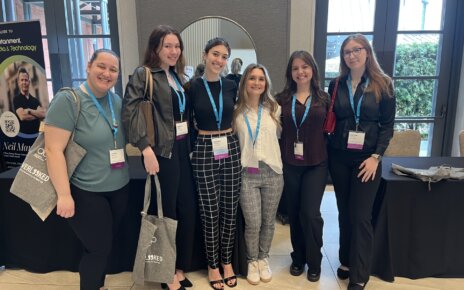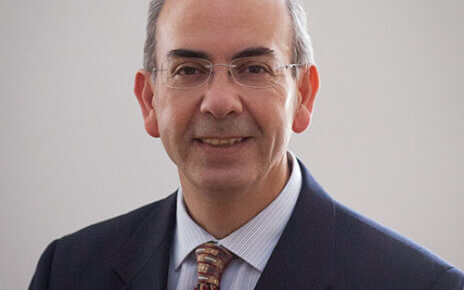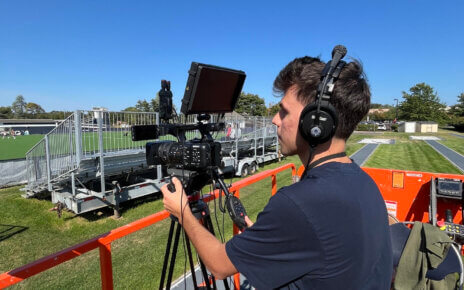The New Jersey Department of Education’s mandate establishing climate change as a requirement for NJ elementary, middle, and high school curriculums will go into effect beginning in the 2021-2022 school year, according to nj.gov.
“An Interdisciplinary Approach to Teaching Climate Change in NJ Classrooms” was held as part of the University’s Climate Crisis Teach- Ins week, from Monday, Oct. 26 to Friday, Oct. 30. Presenters included Associate Professor Jiwon Kim, Ph.D., Lecturer Michelle Schpakow Ed.D., and senior students Alexandria Marchesani, Brielle Sadowski, and Mary McGee. The discussion to integrate climate change into NJ classrooms was held on Wednesday, Oct. 28.
One topic examined was of the various ways that climate change can be incorporated into different subjects taught in schools. Schpakow, Science Education Lecturer of the Department of Curriculum and Instruction, said that teaching climate change is not limited to social studies and science. Subjects such as math can help students learn to analyze models and data, and art could help draw attention to the issue in regard to climate change.
“Education on climate change is extremely important for younger generations. This generation will grow up one day and become the world’s doctors, politicians, scientists, etc. Thus, they need to be informed of what climate change is and how they can slow the harmful effects of climate change,” said Alexandria Marchesani, a senior majoring in Interdisciplinary Studies For Elementary Educators, who has taught topics of climate change and applied some of her prior teaching experience to the issue. “Younger children are motivated by learning new material because they have a lot of ‘why’ questions. Thus, as a teacher, you need to take these questions and extend both students’ interests and knowledge.”
Developed curriculums were then proposed to present the different ways that climate change can be taught in a classroom setting. Marchesani discussed a lesson plan suitable for third graders that would focus on student reflection upon the topic of climate change. The first lesson would touch upon what causes climate change and its effects, followed by a second lesson that focused on ways to reduce personal consumption, and finally a school assembly where students would present their personal action plan to inform their community.
Brielle Sadowski, a student majoring in Interdisciplinary Studies For Elementary Educators, presented a curriculum for a fourth-grade class tending to the English Language Arts (ELA) and Math integration aspect. Sadowski explained that the ELA lesson plan would include learning vocabulary related to climate change. Books such as The Magic School Bus and the Climate Change would also be read to students to illustrate different actions that have an effect in the environment. As for the math aspect, Sadowski discussed how mathematical operations would be used to calculate carbon footprints for each student and to formulate a class bar graph with the data.
Presenters were asked for their thoughts regarding educators who were opposed to teaching climate change in their classes. “[Some] of the instructors do not want to include it because they feel it is not their job and not a part of their curriculum,” replied Schpakow. “New Jersey standards are changing; even if teachers are not for it, they have to stick to the standards. Activities can be adjusted, but you have to stick to the discipline.”
Associate Dean of the School of Science, Catherine Duckett, Ph.D., weighed in on the question. She said, “[From] my perspective as a teacher, I think to most of those that say climate change isn’t important, what part of climate change are you afraid of? What part of climate change makes you uncomfortable? Discussing climate change may help relieve those [people].”
“The climate crisis is going to change all of our lives; but younger people will live longer with the consequences of climate change, so they need to know more about how their future will change, and how it might be improved by climate mitigation,” Duckett said. “We also have the responsibility to teach students that although climate has changed in the past, when it has changed very rapidly, biological species have not been able to adapt quickly enough and there have been many extinctions… it is totally unethical to not teach children about the climate crisis. It is a huge problem and mostly they will have to make their way in a world where the patterns for problem solving of the past—those established by my generation and previous generations—just do not work.”
On the issue of climate change, Duckett said, “I accept that it is a crisis, and that many humans will die from [climate change] even if we address it seriously now. If we do not address the cause of climate change, carbon dioxide and methane emissions seriously and vigorously, the natural world is going to change beyond all recognition in the lifetimes of current MU students.”
John Morano, Professor of Journalism, is the author of an environmental book series that uses endangered species and imperiled habitats as his main characters and primary settings. He visits schools of all levels regularly to discuss issues of climate change. “I would strongly agree with Dr. Duckett that teaching climate change is a moral imperative. We are in the midst of a mass extinction, largely driven by human activities. For serious educators not to bring the discussion into their classrooms, regardless of discipline, is short sighted, to say the least,” Morano said. “When I visit schools to discuss my books, I’m often bounced from English classes to environmental science classes to journalism classes. The one thing all these visits have in common, is that we are discussing the effects of climate change. This issue demands an interdisciplinary approach.”
Presenters were also asked of their thoughts on how they felt about the University’s contribution to climate change. “I would want more teachings to be implemented into Monmouth University’s classes because personally, I know some students who do not believe climate change is real. This is truly upsetting because climate change is real, and it negatively affects every human on Earth,” said Marchesani.
In response to the same topic, Schpakow said, “I think climate change instruction is vital to younger students in NJ because they are already growing up in an environment affected by climate change, and they will need to know how to respond to problems it produces in the near future. This instruction should be continued through the college level, including classes at Monmouth University.”
Along with seeing an increase in awareness within Monmouth, the presenters were generally seeking an inspirational impact from the teach-in. “More recently, climate change has been denied and rejected by many even though those individuals are being affected by climate change as we speak,” Marchesani said. “Therefore, as an education major, I want to inform younger generations about the facts of climate change and that climate change is real. Thus, this will eliminate wrong opinions about climate change and will only focus on the scientific facts.”
Schpakow added, “I think the main take-away should be that climate change instruction is a shared responsibility and we all have to do our part. The changes to the standards are the first step toward reminding teachers that the crisis affects everyone and therefore needs to be addressed across the board rather than ignored under the assumption that ‘someone else’ will teach it eventually.”
Associate Professor of Social Studies and Foundations of Education, Jiwon Kim Ph.D., is preparing for a new course called, “Educating for Sustainability” to teach students sustainable development goals and train them to educate such goals. She said, “[The] School of Education is launching a conference, ‘Sustainability Education Week,’ inviting educators, students, schoolteachers, and environmental education experts. I anticipate this will contribute to a collective action by our University and community.”
Kim said, “NJ is the first [state] in [the] nation that requires climate change and prompts action in curriculum across grade levels and subject areas. This is a very important and inspiring step, but successful and meaningful implementation in all classrooms should follow. I hope our presentation could give awareness and knowledge to all the attendees who are educators somewhere, whether in college, future K-12 classrooms, workplaces, or community.”
PHOTO COURTESY of Monmouth University




